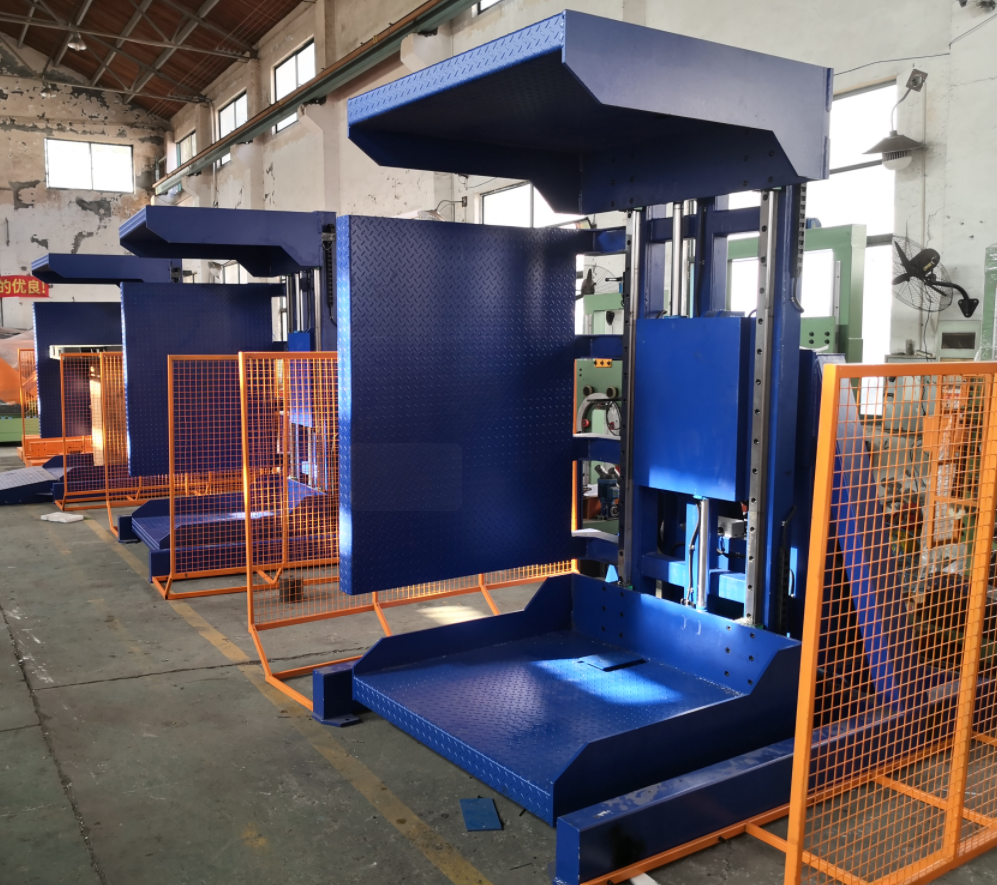
The first time I purchased a pallet flipping machine for my business, I was excited about the potential boost in efficiency. However, that initial excitement faded when unexpected fees began appearing, costs that weren't clearly outlined upfront. Like many business owners, I hadn’t scrutinized the fine print in the purchase agreement closely enough. This was a costly lesson, and my goal here is to help you avoid similar pitfalls. Understanding the complexities of these agreements is vital for a smooth and financially sound purchase.
During that experience, I learned that many agreements use ambiguous language or omit details that lead to unanticipated costs. These hidden charges, spanning from delivery and installation to warranty limitations and training, can significantly inflate the total investment if not identified and negotiated beforehand. Proactively analyzing your purchase agreement doesn't just save money; it establishes a foundation for a transparent relationship with your supplier.
Let's delve into how you can achieve clarity, control your budget, and secure a fair deal when acquiring a pallet flipping machine.
[claim] Hidden fees can transform an apparent good deal into a significant financial burden. Mastering the identification and negotiation of these potential costs is crucial for every equipment buyer.
1. Identifying Common Hidden Fees in Pallet Flipper Agreements
1.1. Delivery and Freight Charges: Beyond the Basics
Delivery is often a primary source of unexpected costs when purchasing heavy machinery like a pallet flipping machine. While some suppliers might advertise "free shipping," this often doesn't cover everything. I once encountered a hefty "special handling fee" for oversized equipment, despite the initial promise of complimentary shipping.
To ensure transparency, ask specific questions upfront:
- Are there additional charges based on delivery zone or distance?
- Does the quote include liftgate services or special equipment handling if needed?
- Is freight insurance included, or is it an extra cost?
- Are there expedited shipping options, and what are their associated fees?
Clarifying these details prevents unwelcome surprises on the final invoice.
1.2. Installation and Setup Costs: Is It Truly Included?
Once the pallet flipper arrives, installation and setup present another potential area for hidden fees. Many purchase agreements exclude these services from the base price. If installation is mentioned, the scope might be limited. For example, a vendor might offer "free installation" that only covers basic setup within a specific geographic area, leaving you responsible for technician travel, site preparation, or complex integration costs.
Examine the agreement carefully:
- Is installation explicitly included or quoted separately?
- Does the included service cover technician travel, labor, necessary calibration, and testing?
- Are any site preparation requirements (e.g., electrical, foundation) your responsibility and cost?
- Are follow-up visits for adjustments included or charged extra?
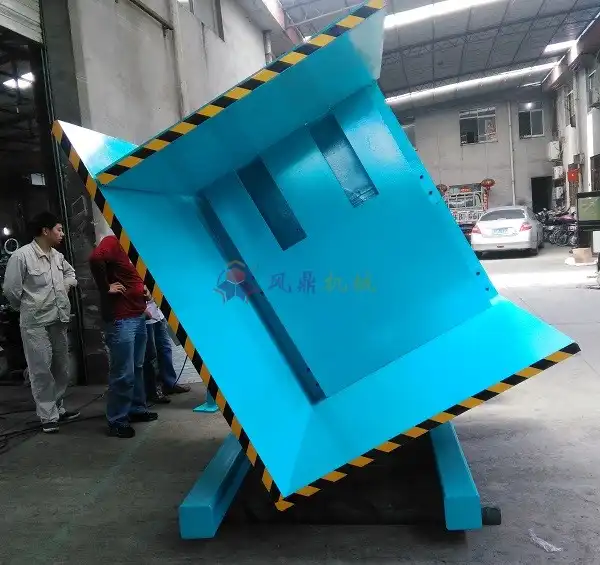
1.3. Warranty Limitations and Exclusions
A comprehensive warranty is essential for any significant equipment investment. However, the actual coverage can be undermined by hidden exclusions. I once reviewed a warranty that seemed robust but specifically excluded common wear-and-tear parts like bearings, seals, and hydraulic components – items critical to the pallet inverter's function.
Scrutinize the warranty clause:
- What specific components are covered, and for how long?
- Are both parts and labor included in warranty repairs?
- Are there conditions that void the warranty (e.g., using non-approved parts, improper maintenance)?
- What is the process for making a warranty claim, and are there associated costs (e.g., shipping parts)?
A transparent warranty protects you from unexpected repair bills for covered failures.
2. How to Proactively Spot Hidden Fees Before Signing
2.1. Demand a Detailed Line-Item Breakdown
Purchase agreements often present costs as a single lump sum, making it difficult to identify individual charges. Insist on a detailed line-item breakdown of all costs associated with the pallet flipping machine. This level of detail illuminates exactly what you're paying for and can expose questionable additions. In one negotiation, a line-item quote revealed a vague "documentation fee" that was easily challenged and removed.
Request that the quote explicitly lists:
- Base machine price
- Delivery/freight charges (including any accessorial fees)
- Installation and setup costs
- Training fees (if applicable)
- Applicable taxes and duties
- Any other miscellaneous charges (e.g., software licenses, extended warranty)
Hesitation from a supplier to provide this breakdown can be a significant red flag.
2.2. Review the Agreement with Procurement or Legal Expertise
Equipment purchase agreements are legal documents often filled with technical and legal jargon. Misinterpreting a single clause can have costly consequences. I once assumed a contract's "maintenance support" clause covered routine upkeep, only to discover later it meant only basic phone support, leaving actual maintenance and repairs as my responsibility.
Consider having a procurement specialist or legal counsel review the agreement before signing. Their expertise can help identify ambiguous language, unfavorable terms, or missing clauses. This investment is often minor compared to the potential cost of overlooked fees or obligations.
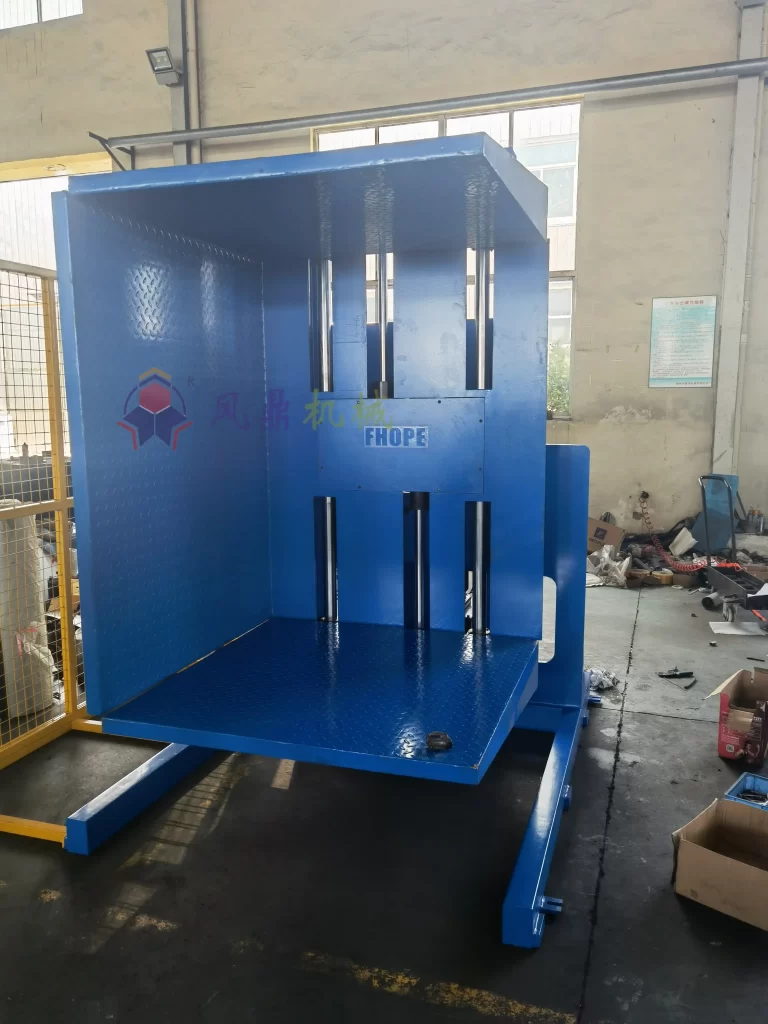
2.3. Investigate Vendor Reputation and Customer Feedback
Learning from the experiences of others is invaluable. Before finalizing a purchase, research the supplier's reputation. Look for online reviews, testimonials, case studies, and discussions in industry forums. Pay attention to comments regarding pricing transparency, hidden costs, and post-sale support.
Ask the vendor for references from businesses similar to yours. Speaking directly with previous customers can provide candid insights into their experience with the supplier's contracts and billing practices. Consistent negative feedback about unexpected charges should raise concerns.
3. Essential Questions to Ask Your Pallet Flipper Supplier
3.1. What Are the Specific Terms for Maintenance and Repair Costs?
Don't assume maintenance is fully covered, even during the warranty period. Clarify the specifics. During one purchase, I learned late that while warranty labor was covered, replacement parts were not, leading to unexpected costs for minor component failures.
Ask directly:
- Does the warranty cover both parts and labor for repairs?
- What components or types of failures are specifically excluded?
- What are the standard response times for service calls?
- Are preventative maintenance services offered, and are they included or optional extras?
Ensure these details are documented clearly in the final agreement.
3.2. Are There Fees for Training and Ongoing Support?
Properly operating and maintaining a pallet flipping machine requires trained staff. Some suppliers include initial training, while others charge significant fees for on-site sessions, remote support, or advanced operational guidance. I once received a surprise invoice for "advanced user training" that wasn't discussed during negotiations.
Clarify training and support terms:
- Is initial operator training included in the purchase price? How many staff members are covered?
- Are training materials (manuals, videos) provided?
- Are there additional fees for advanced training, maintenance training, or refresher courses?
- What level of technical support is available (phone, email, remote), and are there associated costs?
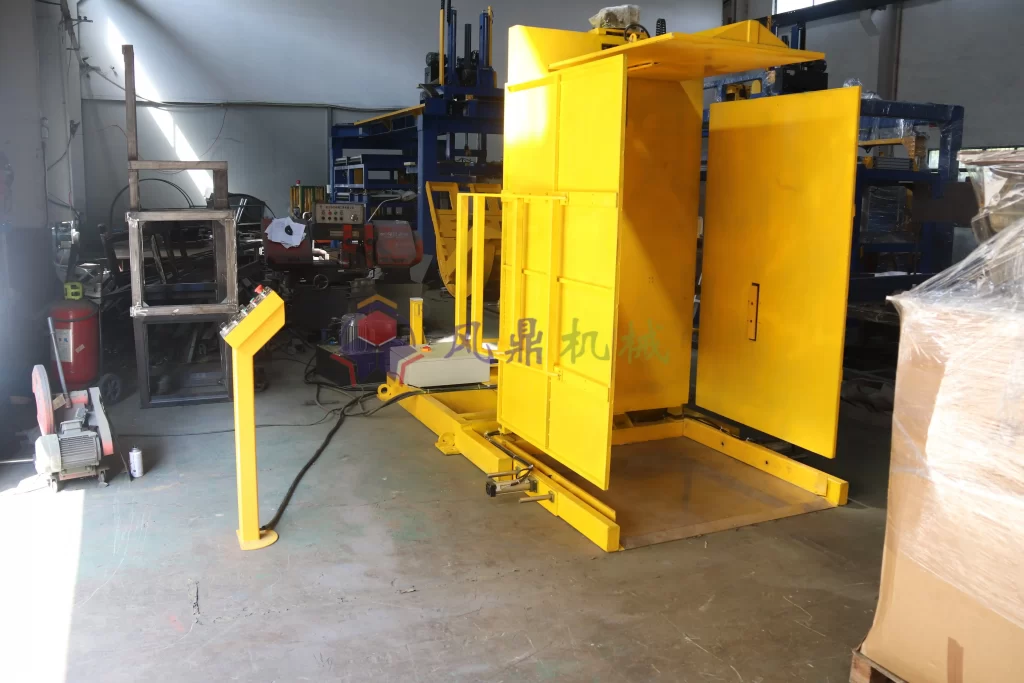
3.3. What Happens After the Standard Warranty Period Expires?
Purchase agreements often focus on the initial warranty but provide little detail about long-term support. Post-warranty service and parts can be expensive. I once faced repair costs for a critical component failure after the warranty expired that were surprisingly high, significantly impacting the machine's total cost of ownership.
Inquire about the post-warranty phase:
- Are extended warranty options available? What do they cover, and at what cost?
- What are the typical costs for service calls (labor rates, travel fees) after the warranty ends?
- How readily available are spare parts, and what are their average costs?
- Does the supplier offer preventative maintenance contracts post-warranty?
Understanding these long-term costs helps you accurately budget for the machine's entire lifecycle.
4. Negotiating Terms to Minimize Unexpected Costs
4.1. Aim to Bundle Costs into the Main Purchase Price
An effective negotiation strategy is to request an all-inclusive price that bundles key services like delivery, installation, and initial training into the primary equipment cost. This minimizes the chance of surprise add-on fees later. In one negotiation, I successfully included a comprehensive two-year maintenance plan within the base price by making it a condition of the sale.
Suppliers serious about making a sale are often receptive to bundling requests. Clearly state your expectation for an all-inclusive quote early in the negotiation process.
4.2. Leverage Bulk Purchases or Long-Term Commitments for Discounts
If you are purchasing multiple pallet flippers or other equipment, or if you anticipate a long-term relationship with the supplier, you have greater negotiating leverage. Hidden fees often arise from individually priced, smaller services. By committing to a larger order, you can often negotiate waivers or significant discounts on these ancillary costs like installation or extended support.
Explicitly ask about volume discounts, package deals, or loyalty incentives. Suppliers are typically willing to concede on smaller fees to secure a larger, more valuable contract.
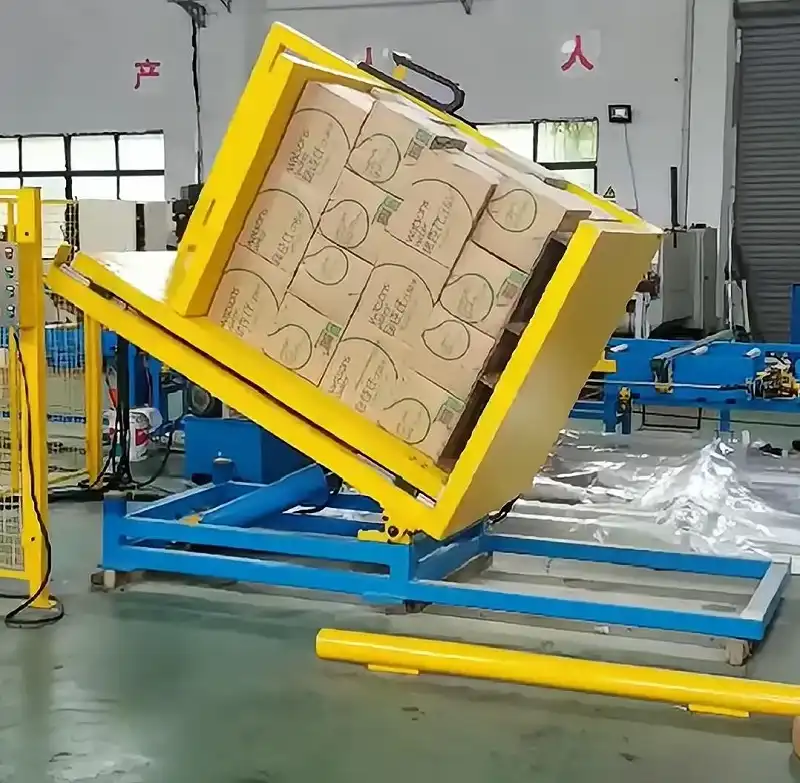
4.3. Negotiate Flexibility for Future Needs and Adjustments
Business needs evolve. Rigid contracts can become problematic if you need to upgrade capabilities, relocate equipment, or adjust service levels. I once encountered an agreement that lacked flexibility, forcing a costly workaround when our capacity requirements increased sooner than expected.
Discuss potential future scenarios during negotiation:
- Can the service agreement be adjusted if your usage patterns change?
- Are there options for equipment upgrades or trade-ins down the line?
- What are the terms if you need to relocate the equipment?
Suppliers willing to build flexibility into the contract demonstrate a commitment to partnership and are often more transparent overall.
Conclusion: Ensuring a Transparent Pallet Flipper Purchase
Navigating the complexities of a pallet flipping machine purchase agreement requires diligence, but the reward—a clear, fair, and well-negotiated contract—is substantial. By understanding potential hidden fees, asking targeted questions, carefully reviewing terms, and negotiating effectively, you can avoid costly surprises and ensure your investment aligns with your operational needs and budget.
[claim] Achieving transparency in equipment purchase agreements goes beyond saving money; it builds trust with your supplier and ensures your new pallet flipper delivers maximum value from day one.
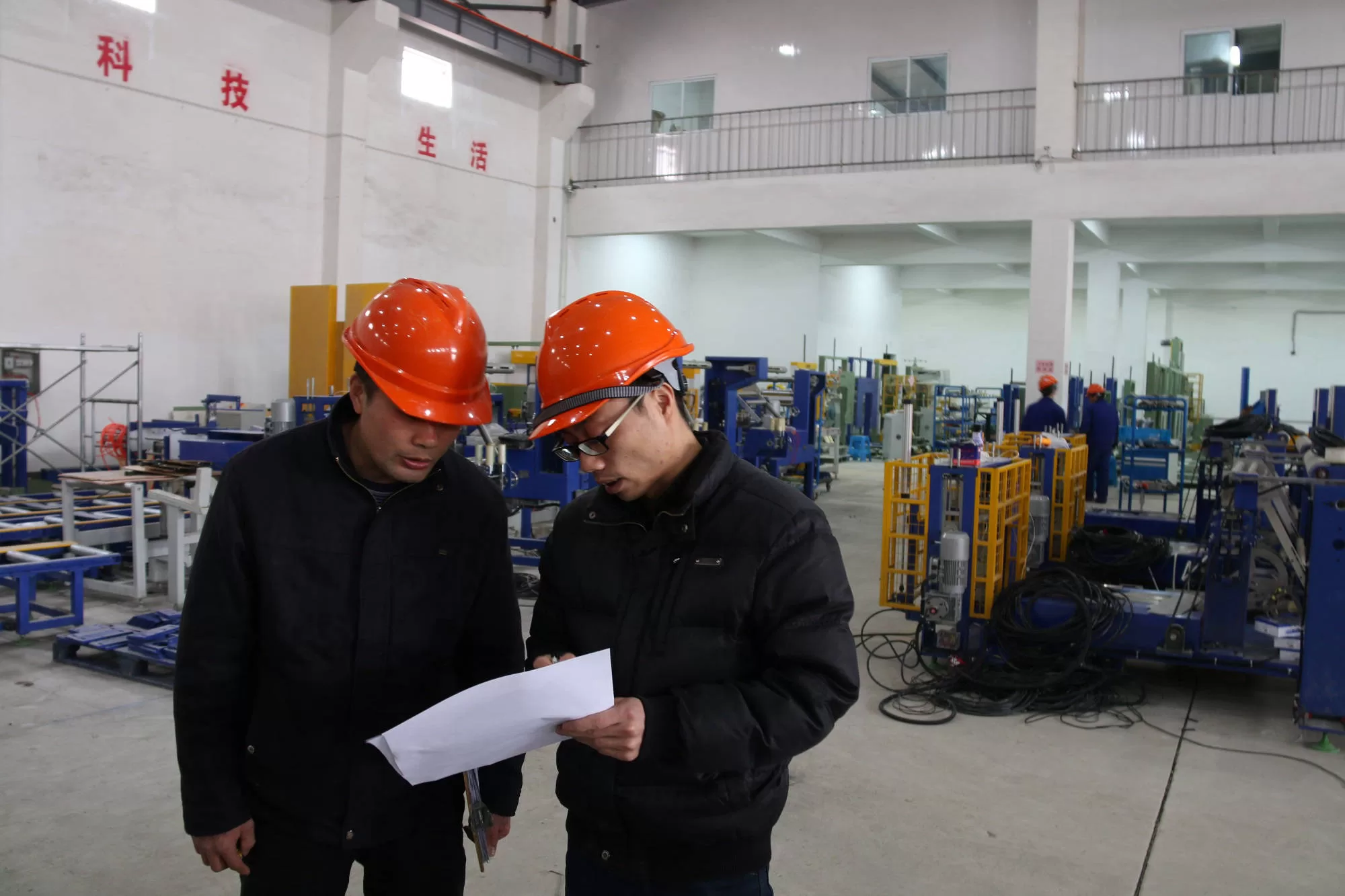
Get Your Best Solution !